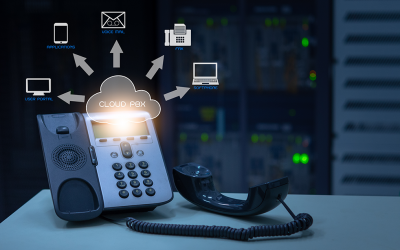Call routing may seem simple and something that doesn’t demand much planning, but call if routing is not thoughtfully planned before you implement your hosted VoIP solution, the consequences can be dire. If done correctly, the benefits of call routing are great.
In a traditional, non-VoIP phone system, call routing software was somewhat simple. Digital and analog lines were the only types of lines and the call routing software was fairly straight forward.
Call Routing Terms to Be Familiar With
- DID Call Routing – an incoming call is routed to a direct extension instead of a reception phone.
- Call Forwarding – an incoming call is routed to another phone line, usually a cell phone number.
- Interactive Voice Response (IVR) – an incoming call is routed to a recording that gives the caller a recording (voice), offering call routing options. When the caller makes a choice, the call is then routed to a predetermined destination. IVR is also referred to as an automated attendant.
- Virtual Number Call Routing – similar to a DID, a virtual number, usually less expensive than a DID, only routes to a voicemail box or a call forward, but not an actual phone that can be answered.
- Automatic Call Distribution (ACD) – this is automatic call routing that is used in call center environments where calls are routed based on several different, specific call routing rules. ACD’s typically integrate with a customer CRM to better identify the caller. ACD’s call routing software can be very sophisticated especially with more advanced Contact Center platforms.
- Conference Bridge – an incoming call is routed to conferencing software where the caller enters a conference ID and usually a PIN as well.
With a cloud based phone system you get all of the above and a few critical upgrades. Since a hosted phone system uses VoIP as its call delivery protocol (vs. digital and analog lines), call routing is much more flexible.
- Call Forward – unlike traditional business phone systems where a call forward has to use two phone lines (original incoming call and a second line to call out) VoIP call forward routing just uses internet bandwidth. Call congestion and potential busy signals are not an issue.
- Off Premise Routing – Because VoIP calls can be routed to any phone or app that has internet access, a business is not limited to routing calls to phones at the business. And the routing destination can be changed quickly and easily.
- Disaster Recovery – in all areas of VoIP, disaster recovery is the single most significant feature. This is true for call routing especially. If one site loses internet connectivity, call routing can quickly be changed to route to another phone, mobile or PC app, IVR, etc.
- Mobile/PC Call Routing – with the advent of Unified Communications, call routing options expanded from just desk phones and IVR’s to applications running on a PC/Mac and a smartphone.
Call Routing Configuration: Things to Consider
The most fundamental consideration when mapping out your call routing rules is that every call must have an endpoint. The last thing any business wants is a call that endlessly loops on itself going from greeting to an IVR, and back to a greeting. An example of proper endpoints for call routing are:
-
- Voicemail for a phone or extension
- Call forward to an outside line
- A greeting only message where the call hangs up
Plan your call routing system to be as efficient as possible. The longer a call has to wait on hold, the more frustrated the caller becomes. Specifically, keep the IVR occurrences to a minimum. The term nested IVR means if a caller makes a routing choice in one IVR they are sent to a second IVR. While necessary is many instances, be careful not to overcomplicate this.
Think about your departments-
-
- Sales – route calls directly to a sales person as quickly as possible
- Customer Service – consider using a call center solution for intelligent routing that improves the customer experience
- Accounting/Office – these calls may not need to be answered by an office employee right away; consider a general voicemail box that can be checked regularly
Contact us for expert advise on the call routing system that’s best for your business!




